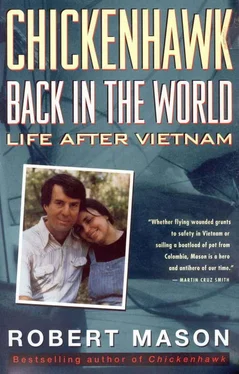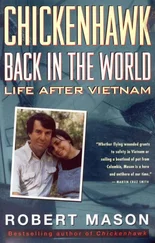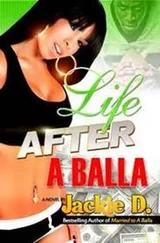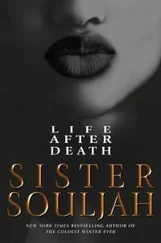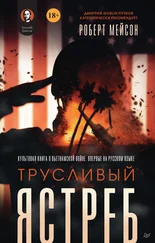Ernest won the talent show by a big margin.
I spent the summer of 1959 in Havana, living with a Cuban family. I saw Fidel Castro there and met Camilo Cienfuegos, a senior general under Castro whom Castro later had killed. I met General Cienfuegos by running past his armed guards when I saw his helicopter landing at the house he’d commandeered across the street from where I stayed. When I got close to the helicopter, I saw Cienfuegos first look surprised and then laugh. I was bounding, barefooted, across his huge yard with his armed guards in hot pursuit. He held up his hand and the guards dropped back. He walked up to me carrying a .45-caliber pistol he fitted with a stock and a long banana clip and asked me, in perfect English (he’d gone to school at the University of Miami), who I was.
I told him I was living with the Uriartes across the street, and I loved helicopters. He laughed and let me walk around and look at his chopper. Then he had one of his guards come over and take our picture together with my camera. After he left, the guards, who were called barbados , became my friends because I had shown such courage. For a boy, they said, I had the cojones of a man, which is a terrific compliment for an adolescent boy.
I knew Cubans, you see, and I liked Cubans, so it was a painful disappointment to me that they were the most unpopular ethnic group in Eglin.
These Cubans were mostly drug smugglers or money launderers, two of the more lucrative industries that have sprung up around the drug business our drug laws have created, and most of them had grown up in Miami. Some of them brought bizarre religious practices like Santeria that involved sacrificing especially trained white doves, and some of the poorer Cubans made sure there was a glass of water under their beds at night to ward off evil spirits. I’d seen none of this in Cuba. These habits added a threatening element to Cuban culture from the Anglos’ point of view. The real problem, though, as the Anglos in camp saw it, was simply that the Cubans were rude. Anglos are seldom rude, even if they are about to kill you. Cubans at Eglin were thought of as loud and pushy. In our crowded living conditions, the Cubans would often pack ten of their friends into one cube and have a noisy party over espresso and cookies. That produced much friction. Anyone making a complaint to them met with surly glares and loud advice on what sorts of things they might shove up their assholes.
There were few fights in Eglin because the penalty for fighting was that all participants in a fight were shipped off to higher-level prisons regardless of who started it. The one exception I knew about was one famous fight in Dorm Three just before I moved to Dorm Five. I didn’t see it but the story got around. A hillbilly from Tennessee, Sammy McGuire, had asked the three Cubans next to his bunk who were having a meeting after lights out if they minded terribly shutting the fuck up. The Cubans got mad and threatened to put the hillbilly’s lights out if he didn’t mind his own fucking business. This usually worked because, as I said, everybody goes to a real prison who’s in a fight, and Eglin is a camp full of wimps. But Sammy McGuire didn’t seem to be impressed. Since it was dark, no one could see the action, but the result was three injured Cubans, one of whom had to be treated at the infirmary.
To the Cubans’ credit, they refused to admit that there had been a fight, claiming they’d all fallen down in the shower. The prison officials, having no witnesses or confessions (after an all-night grilling), were forced to accept the story, but the inmates knew what happened. McGuire became a hero among the Anglos. Even the Cubans respected him.
I had very little to do with the Cubans because they were so hard to get along with. The only one I talked to was a dentist in my section named Antonio. One Sunday afternoon, while I lay in bed reading, a group of Cubans were just outside the dorm, about ten feet from my cube (all major noise in camp was ten feet from my cube; only the airplanes were farther away), talking loudly and playing their radio. The windows were open because the weather was perfect. I tried to ignore the music, even put my headphones on, but it was really loud. I endured for a half hour and finally got mad. I went outside and asked one of the guys, Eduardo, who lived down at the end of my aisle, if they might consider turning the radio down.
Eduardo stared at me sullenly and said, “ No hablo Ingles . I don’t speak English.”
Well, of course he did. I’d talked to him a couple of times.
“C’mon, Eduardo. It’s way too loud. I can’t think. Besides, you aren’t even allowed to use a radio without earphones.”
“ No hablo Ingles ,” Eduardo said. His two friends snickered and looked at me like I was from the Other Side.
I said, “Eduardo, por favor,” and held my hands over my ears.
Eduardo just glared at me as if I had just suggested that his sister fucked donkeys.
I felt my heart pounding in my ears and I was beginning to get into a rage. Didn’t anybody understand the importance of quiet in this fucking place? I mean, we had rules here! I went inside and found my friend Antonio. I told him about Eduardo, and he volunteered to act as my envoy. I watched through the window as Antonio explained to them my side of the issue. Eduardo told Antonio to mind his own business. Antonio came back inside and shrugged. If a Cuban couldn’t make them shut up, then the only people who could were the hacks. However, going to a hack about this kind of problem was worse than the problem; it just wasn’t ethical to rat on an inmate, even if the inmate was a total asshole. I took a walk.
As the population of Cubans grew, so did incidents between them and the Anglos. Cop-outs flooded the counselors’ offices. Even George, the sporting goods felon—the meek and apathetic soul I used to tend grounds with—lost it one night and got into a fight with two Cubans in Dorm Four. A hack saw it, and George and the Cubans were shipped to the federal prison at Tallahassee. That fight and the continuing complaints caused the hacks to cruise the dorms more frequently. They were breaking up the Cubans’ parties, which made the Cubans resent the Anglos even more. A real schism was developing and peace in our little crook farm was jeopardized.
I had cooled down about the radio incident, but when I passed Eduardo in the aisle and tried to be friendly, he just glared at me and said nothing. My transgression, asking for peace and quiet, was not forgivable.
Three weeks after the radio incident, Antonio came to me one night and said he’d heard that the prison was going to ship Cubans, lots of them, out of Eglin. He wanted to know if I’d heard anything about it. I hadn’t. However, the rumors persisted and grew to the extent that the Cubans sent a spokesman to the new warden. Superintendent Honsted had been sent to open a new prison a few months before. The Cubans requested that the warden meet with them outside the administration building to talk about the rumor. On a Friday evening, the warden did. He told the Cubans he’d heard the rumor, too, but that it was only a rumor and they had nothing to worry about. They believed him.
When I woke up Saturday morning, Eduardo was gone. So was Antonio. So was every Cuban in our dorm. At the mess hall, I learned that nearly every Cuban in camp had been rounded up at three in the morning by hacks carrying shotguns (which is amazing, since hacks never carry weapons in a prison unless there’s a riot or something). They were already on buses going, it was claimed, to Atlanta. Being sent to Atlanta Federal Prison, I was told by people who’d been there, is the same as being sent to hell—it’s huge, overcrowded with crazy and pissed-off Marielitos who chant and scream twenty-four hours a day, demanding their freedom, creating a literal bedlam. As much as I didn’t like Eduardo, I wouldn’t wish Atlanta on anyone, especially a pot smuggler who was considered harmless enough to be sent to Eglin.
Читать дальше
